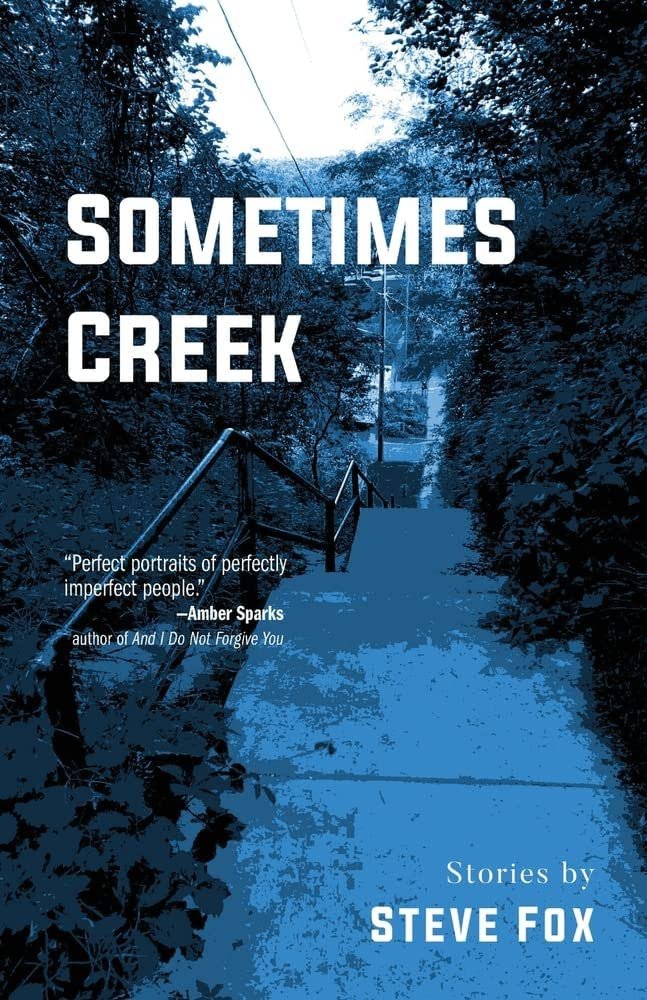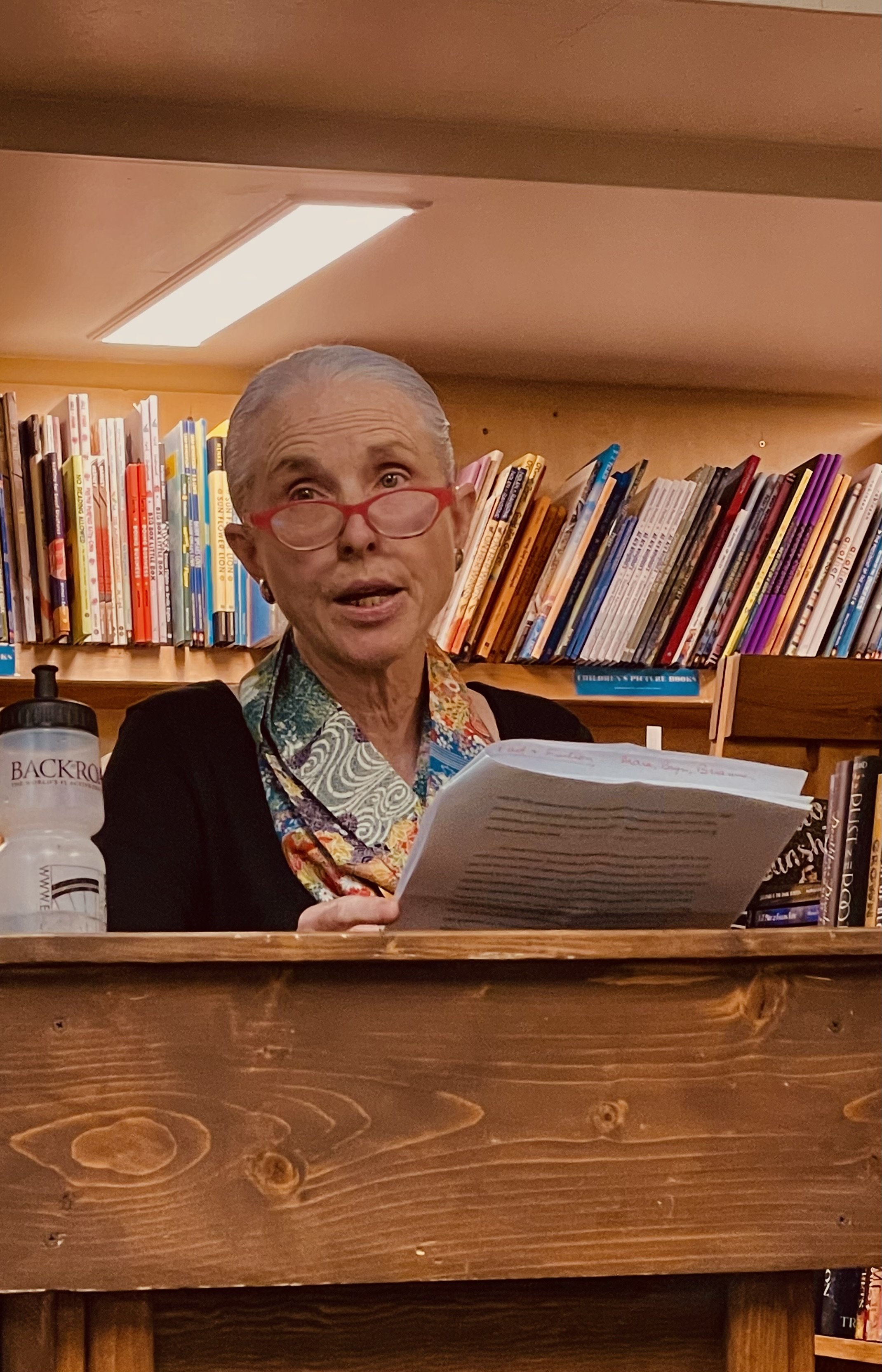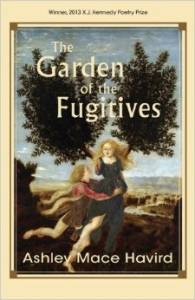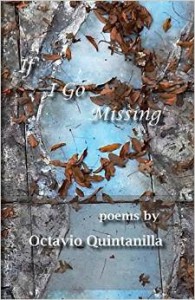
All You Do Is Perceive
by Joy Katz
Four Way Books, 2013
Reviewed by Kay Cosgrove
Some thirteen years ago in a gale of wind,
On a foil packet of shampoo,
After a prayer with no words,
When a spoon leaves a firm imprint,
During the last known hours,
As the meltdown hit groundwater,
When we signed off on everything,
And then, a face: the woundable face of a boy.
(“WHICH FROM THAT TIME INFUS’D SWEETNESS INTO MY HEART”)
So concludes the first poem in Joy Katz’s latest collection, All You Do Is Perceive. This first poem, set off from the rest of the book, reads as an invocation to the muse, who, in this case, happens to be the adopted son of the speaker. Written as one long, breathless sentence, “WHICH FROM THAT TIME INFUS’D SWEETNESS INTO MY HEART” establishes the arc of the book as akin to “a basket tossed weightlessly” (line 13). The poems float from page to page, linked by their shared perception of the world through the eyes of a speaker, who, in turn, sees like a child again. One can feel the joy bursting forth from the pages of this collection, and as readers, we get to share in it through the language of the poems, like children in awe.
Take, for example, the poem “[NOON, F TRAIN].” In it, Katz creates a simple, beautiful portrait of a daily life. Nothing much happens in the poem: there is a woman, arguably the speaker, and she rides the F train home, reading a book. Written in a block of prose, “[NOON, F TRAIN]” unfolds like a movie clip before the reader’s eyes, as if we are there with her on the train. Though the echo of Eliot (“there is time enough…”) might be a bit heavy-handed as an allusion, this repeated phrase evokes a mood that allows the reader to see this ordinary scene through new eyes, to “pass up into the world and leave nothing behind…” (“[NOON, F TRAIN]”).
Much of the book reflects on being a woman in the world, specifically, a woman in relation to a man and/or a child. The speaker both identifies with and makes a distinction between herself and the other ‘characters’ in the collection, the man and the child, who are perhaps representative of the family unit. There is the relationship to a beloved: “his song is the door back to the room/I am composed of the notes” (“DEATH IS SOMETHING ENTIRELY ELSE”), the relationship to the son: “we are sugared in a medium, he and I/He is smiling/Happiness is on me like a scratch in a car door” (“MOTHER’S LOVE”), and the relationship to both of them: “how she must hold to everyone and swim them to the same shore” (“HE LAUGHS TOO HARD ABOUT THE WINE”). In each poem, the speaker, at times in a playful tone and at times rather gravely, highlights these relationships in order to underscore her femininity - the defining difference between both the beloved and the son. This accounts for a different perception of the world, as in the poem “THE LETTUCE BAG” (“If labias were in/season, their tender interiors, their roundness, would be touched by/the grocer’s mist”), or the fourth stanza of “THE IMAGINATION, DRUNK WITH PROHIBITIONS”:
Womanhood is more embarrassing than manhood.
If the woman is old, breakfast is hopeless.
If breakfast is brioche, it becomes less frightening.
Insouciant is more French than nuance,
disappointment more French than matinee,
London more suave than Paris.
(“THE IMAGINATION, DRUNK WITH PROHIBITIONS”)
There is even something childlike in the more serious meditations on womanhood and motherhood, something that insists on finding delight in the most unlikely places. Katz establishes this child-like wonder largely through her playful use of anaphora and repeated images. Katz succeeds in using the phrase “Department of” twenty-one times in “DEATH IS SOMETHING ENTIRELY ELSE”, and in “MOTHER’S LOVE,” she similarly repeats the opening few words again and again so that the poem begins to sound like a song. Less original, but just as striking, is the ending of “JUST A SECOND AGO”, which relies on anaphora to establish an eerie tone of possibility: “just a second ago/while you were crossing the street/while you were finishing your lunch/while you were handing me your terrible secret—“ (lines 25-28). Finally, there is the sky, the air, the natural world we inhabit, and the language we use to understand nature, as in the poem “WE ARE WALKING INTO THE SUNSET”:
Look, the sky has become stained glass made of meat!
You keep talking, as if in utter faith that life will go on forever.
Yet that in itself is lovely. Keep talking. What is more of a pleasure to
See, a moon as big as a bison head or the face of a friend, talking?
("WE ARE WALKING INTO THE SUNSET”)
Another level of perception present in the collection is the perception of the world through the eyes of a writer, specifically, a woman writer. Again and again, Katz acknowledges that she is at work in All You Do Is Perceive, that she has “a few minutes left to write” (“THE COMPOSER”), that “mornings [she] wrote and workmen/raised up their nets” (“ALL YOU DO IS PERCEIVE”). The speaker seems to be trying to reconcile the world with her place in it, a task that might be impossible through poetry:
I get a great, blank feeling, driving. I am a girl, driving.
Poems aren’t labor, progress, robber barons—not poems. Four men sit
in recliners on a grand side lot. Lush weeds, what grows without regard.
Girls’ names no one thinks to pick: Lorraine. Here is the street where
I lived. Where I can be—nothing. Four p.m., light rain, no one asks
what I am writing. A room livingly painted sends its notion into me.
(“TO A SMALL POSTINDUSTRIAL CITY”)
All You Do Is Perceive explores a way of being in the world that relies on consciousness alone, on paying attention to even the most mundane aspects of life, such as carting the empties to the dump (“BIG BABY”) or admitting that being “alone with the baby is boring” (“MOTHER’S LOVE”). In this collection, there is joy even in sorrow, and Katz teaches her readers to notice, to be alert, “to prefer autumn's bigger name, fall, and/its battering change” (“BIG BABY”). All of the poems, as with all of the aspects of life, accumulate one on top of another. Some are happy, some less so, but, through the eyes of a new baby, a son, they can be beautiful, like a basket as it comes crashing back down to earth:
That becomes a basket tossed weightlessly,
As a baby is handed through the air to us,
In the final seconds of the fourth quarter,
Halfway through the preface,
After they set us on fire…
(“WHICH FROM THAT TIME INFUS’D SWEETNESS INTO MY HEART”)
----------------------------------------------------------------------------------------
Joy Katz is the author of All You Do Is Perceive (2013, Four Way Books) as well as two previous poetry collections. A former Wallace Stegner and National Endowment for the Arts fellow, she lives in Pittsburgh, Pa., where she teaches in the graduate writing program at Chatham University. More information can be found at www.joykatz.com.
Kay Cosgrove was the winner of the 2013 Writers Under 30 Contest from The Westchester Review. Her work has appeared or is forthcoming in Barrow Street, Conduit, and EPOCH Magazine, among other journals. She is currently a doctoral student in the University of Houston's Creative Writing & Literature program, where she serves as a poetry editor for Gulf Coast.
























